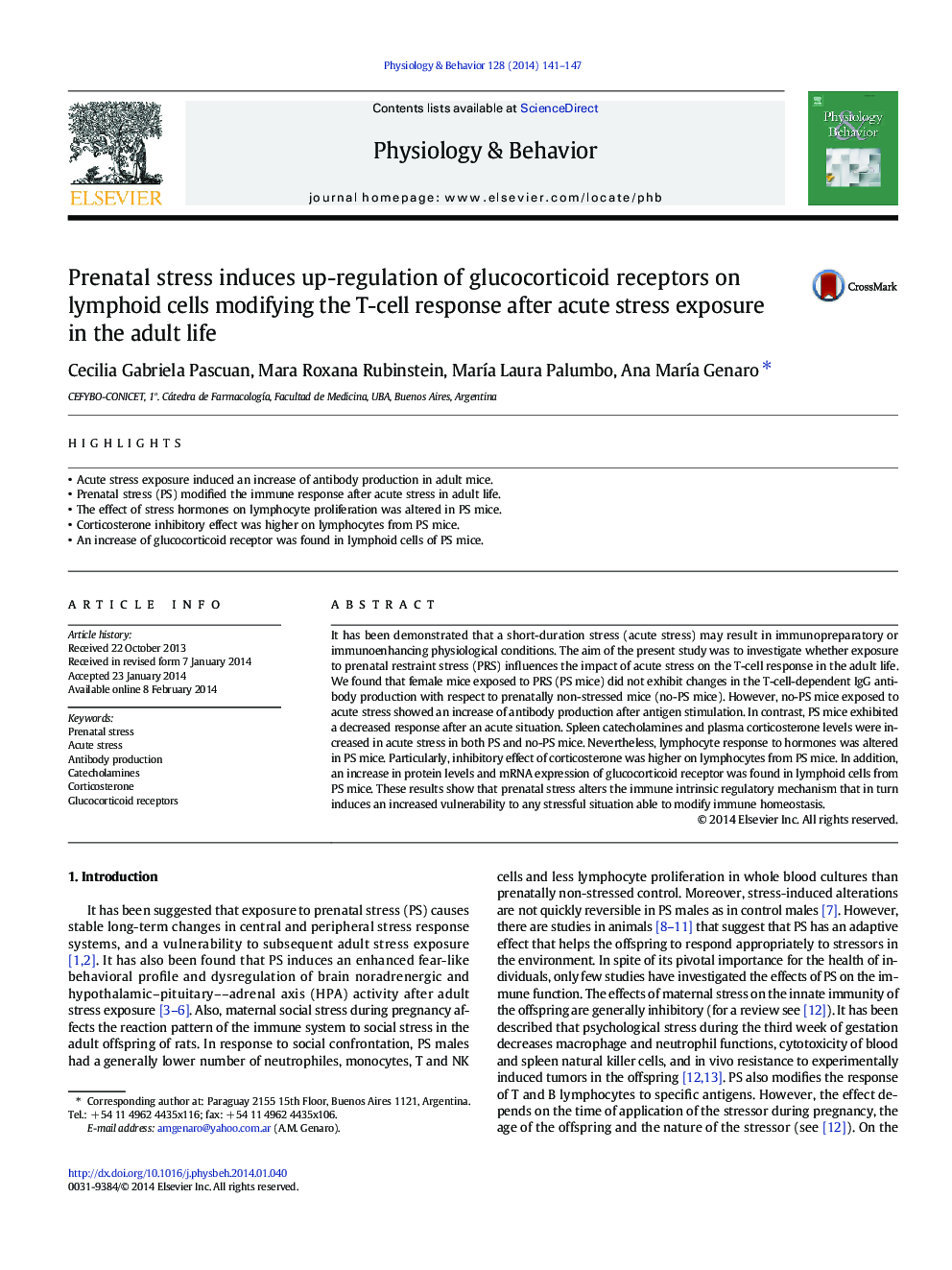| Article ID | Journal | Published Year | Pages | File Type |
|---|---|---|---|---|
| 5924446 | Physiology & Behavior | 2014 | 7 Pages |
Abstract
It has been demonstrated that a short-duration stress (acute stress) may result in immunopreparatory or immunoenhancing physiological conditions. The aim of the present study was to investigate whether exposure to prenatal restraint stress (PRS) influences the impact of acute stress on the T-cell response in the adult life. We found that female mice exposed to PRS (PS mice) did not exhibit changes in the T-cell-dependent IgG antibody production with respect to prenatally non-stressed mice (no-PS mice). However, no-PS mice exposed to acute stress showed an increase of antibody production after antigen stimulation. In contrast, PS mice exhibited a decreased response after an acute situation. Spleen catecholamines and plasma corticosterone levels were increased in acute stress in both PS and no-PS mice. Nevertheless, lymphocyte response to hormones was altered in PS mice. Particularly, inhibitory effect of corticosterone was higher on lymphocytes from PS mice. In addition, an increase in protein levels and mRNA expression of glucocorticoid receptor was found in lymphoid cells from PS mice. These results show that prenatal stress alters the immune intrinsic regulatory mechanism that in turn induces an increased vulnerability to any stressful situation able to modify immune homeostasis.
Keywords
Related Topics
Life Sciences
Biochemistry, Genetics and Molecular Biology
Physiology
Authors
Cecilia Gabriela Pascuan, Mara Roxana Rubinstein, MarÃa Laura Palumbo, Ana MarÃa Genaro,
